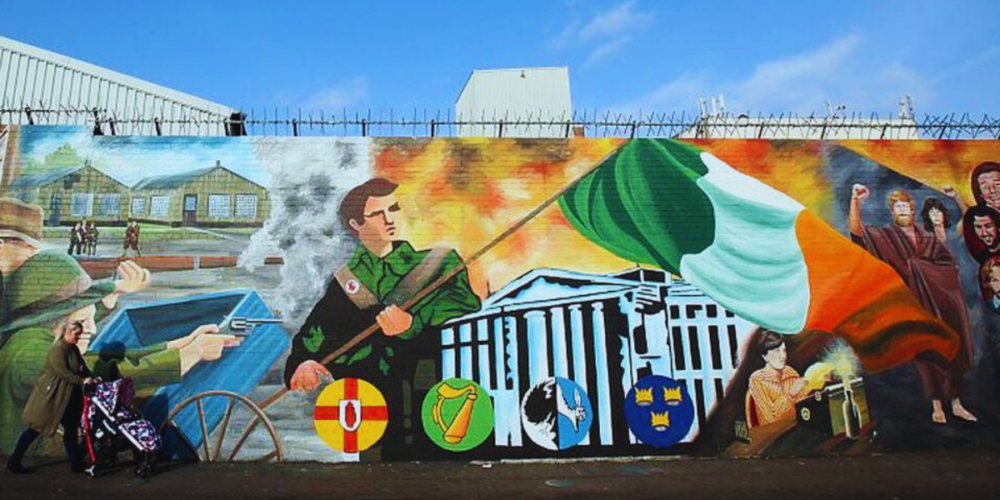On 18th January 2024, 150,000 public sector workers joined together in a wave of strikes across the North. The main reason for this strike was pay. Workers were demanding pay increases that match inflation.
Public sector workers’ pay has been falling behind inflation for more than a decade: more than 4% between 2021 and 2022. Wages are now so low the situation is untenable with virtually every public sector body and agency reporting a staffing crisis rooted in an inability to recruit and retain staff. According to the official Annual Survey of Hours and Earnings (ASHE), full-time public sector workers in the North saw their real pay fall over 7% in 2023.
The British government say the money is there for these pay increases but that it is a devolved matter and can only be signed off when the Stormont assembly is back up and running.
The strike is only tackling the symptom and not the cause of the problem, which is the failure of the six counties as a political entity.
The British government decides the amount of funding they provide the Stormont Assembly with each year. If the Assembly was functioning, it could only administer the funds provided by Britain. The fact that the assembly is not sitting exposes the fallacy of democracy in the North.
The DUP collapsed the assembly two years ago in protest over post-Brexit trade rules for the North. Various talks and negotiations with the British for concessions to entice them back into Stormont have been ongoing since. The British government have offered an extra £3 billion in funding if they return to the assembly. Previously in 2017 they increased funding by £1 billion to secure the support of the DUP for the Conservatives in the British Parliament.
Citizens and unions need to tackle the cause of the problems in the North, not the symptoms. Whatever hope there was at the time of the Good Friday Agreement for a new beginning, the reality is that there is no democracy in the North. The Stormont Assembly is an undemocratic British construct that institutionalizes sectarian division, in a British colony, and is open to bribes and manipulation by the colonial master.
Séamus Mallon famously described the Good Friday Agreement as “Sunningdale for slow learners”. The fact of the matter is, be it Sunningdale or Stormont, the Government of Ireland Act or the Anglo-Irish Agreement, they are all but British colonial rule under different names. Colonies are there to benefit the coloniser not the colonised: it appears Séamus Mallon and many others are slow to learn this reality.
Citizens and unions need to decolonise their minds. Britain is not a benign benefactor. Trade unions talk about Tory cuts as if it would be any different under the British Labour Party. History does not reflect this.
Trade unions have 200,000 members in the six counties. The elephant in the room has to be tackled at some stage. They can ignore the failure of the North as a political entity but it will not ignore the trade union movement. British colonialism is wrong, was wrong and always will be wrong. Trade unions must be on the right side of history and stand up against the Imperial master.
Some trade unionists say it is divisive to mention the failure of British Rule and a trade union that aligns itself with Irish unity would alienate half its membership. Using this logic nobody in favour of Irish unity would join a trade union in the North.
Trade unions must lead from the front and forget outdated prejudices. Unions have always been to the forefront of progress for humanity, for marriage equality, the struggle against apartheid and racism, for reproductive and equal rights for women, despite opposition. The world has moved on from abominations of the past. The British Empire and slavery are no more. It is complete hypocrisy for unions to stand with Palestine and ignore colonial rule in Ireland.
Trade union leaders must turn their attention to what is right and ultimately best for their members. Is this British rule, or is it a new independent socialist Ireland with an economy for the common good, where no one Is left behind and everybody can reach their full potential?
A united working class from the Bogside to the Shankill, from Ballymena to Ballymun, from Portadown to Port Láirge, working together to build an Ireland independent of Brussels, London and Washington hegemony, ruled in the interests of the working class, not big house unionism, landlords, banks, or speculators.
It’s time to start the conversation or the working class will be sold out by Fine Gael, the DUP and the capitalist class, who know exactly what they want in a United Ireland.
“The people of Ireland will only be free, when they own everything from the plough to the stars.” – James Connolly






